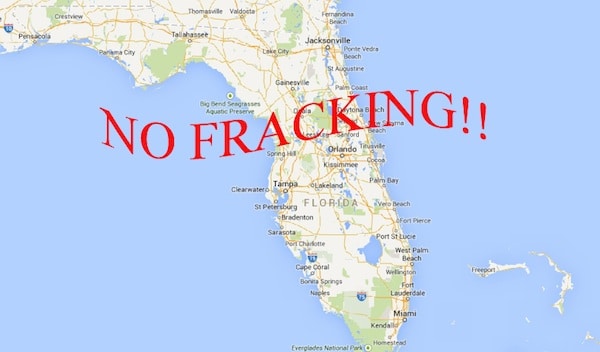The South Florida town of Bonita Springs has officially banned fracking. The city council voted early Wednesday to ban all types of well stimulation techniques to extract fossil fuels, which includes fracking, within the city limits.
Bonita Springs has now become the second municipality in the state of Florida to enact a ban on fracking.
Before the council voted on the ban, Collier Resources, a leading Florida dirty energy company, announced their opposition to the ban, lobbying to get a 90-day continuation before the final vote.
But Mayor Ben Nelson said that the citizens of Bonita Springs deserved to know that their drinking water would not be contaminated by fracking, and that’s why the city council moved forward with the vote.
Collier Resources owns thousands of acres of land in Bonita Springs for the sole purpose of launching fracking operations, on top of more than 800,000 acres of land throughout the state that is set aside for the same purpose.
This is a massive investment that the company will undoubtedly work to protect by lobbying to remove the fracking ban. The Collier family donated more than $200,000 to Republican Governor Rick Scott’s re-election campaign in 2014.
However, Collier and other dirty energy interests may not have to do anything at all to get the ban lifted.
Earlier this year, the Republican-controlled House of Representatives in Florida passed legislation that would have made it nearly impossible for municipalities in the state to ban fracking by imposing incredibly modest “regulations” for fracking operations in Florida. These new rules would have allowed the company to operate in the state without disclosing the chemicals that they are using, and would have imposed the bare minimum of fines if a company is caught breaking the law.
The legislation died when the Republican-controlled Senate refused to debate the issue before heading for their spring vacation, but legislators have signaled that they will resume talks in the near future.
The ban in Bonita Springs is a remarkable achievement, and hopefully this concept will spread throughout the state. Already, fracking companies have threatened parts of the fragile Everglades with their activities, and they’ve also worked hard to allow fracking to occur in wildlife sanctuaries.
If the fracking ban trend catches on, it has the potential to save countless species that would be threatened by fracking contamination.
Subscribe to our newsletter
Stay up to date with DeSmog news and alerts






